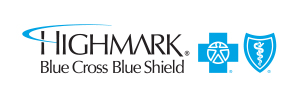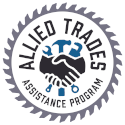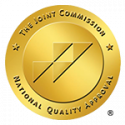Embarking on the 30-Day Sobriety Challenge can be a life-altering journey, paving the way towards a healthier and happier life where you’re in control. Whether you’re tackling drug or alcohol addiction, the first month of sobriety is a critical period in your recovery journey. This challenge is not just about abstaining; it’s about building a foundation for lasting change.
What to Expect During the First 30 Days
As you take this courageous step toward a more fulfilling life, you can help yourself by preparing for the physical and mental hurdles that may come up in the initial 30 days of sobriety.
During the first few weeks, you may experience a mix of emotions. These can range from moments of clarity and self-discovery to confronting feelings you’ve previously pushed down. Doubts and cravings are likely to crop up, but remember they are part of the healing process. Physically, your body will go through changes as it detoxifies. Withdrawals can range from mild discomfort to more intense reactions.
You can also expect changes for the better! During the first 30 days of sobriety, weight loss, better sleep quality, and improved skin are common. Mental changes, like increased emotional stability, and the growth of healthier coping mechanisms are also common–not to mention financial savings!
At Sobriety Solutions, we understand the significance of this journey and are here to guide you through the process. Here are some valuable tips to help you succeed in the 30-Day Sobriety Challenge.
1. Realize Commitment is Key
The first day of sobriety is a milestone in your journey toward healing. Embrace it with determination and a positive mindset. Understand that this day marks the beginning of a transformative process, and each day that follows brings you closer to a healthier version of yourself. Take some time to write down your ‘whys’. Just a simple list will do. There will be some bracing days ahead, and you can use this as a tool to encourage yourself.
2. Create a Support System
Building a solid support system is crucial during the first 30 days of sobriety and the days after. Share your intentions with friends and family (either your birth family or chosen family), and consider joining a support group. Sobriety Solutions offers a welcoming community where individuals faci
g similar challenges come together to share experiences and encouragement.
A challenging truth of sobriety is that part of building a support system can also include removing people from your life. Some relationships or dynamics tend to pull you back into old habits or unhealthy mental spaces that could trigger your addiction. It is entirely okay to distance yourself from these relationships as you pursue your sobriety.
3. Set Realistic Goals
Establish achievable short-term goals for the first month. These milestones include attending support group meetings, engaging in therapy, or finding alternative activities to replace substance use. Focus on small, incremental milestones that contribute to your overall success. Whether maintaining a daily journal or practicing mindfulness, setting realistic goals ensures a sense of accomplishment and motivation. And, of course, remember to celebrate when you meet a goal!
4. Redirect Your Attention
Boredom and idle time can trigger relapse. Filling your schedule with activities can help bring joy and build a foundation of new habits that have nothing to do with your addiction. Whether it’s pursuing a hobby, spending time with loved ones, or engaging in community events, positive distractions can distract you from cravings and contribute to a positive mindset.
5. Celebrate Small Wins
Recognize and celebrate your achievements, no matter how small. Whether completing a week or successfully overcoming a challenging situation without falling back on old coping mechanisms, any breakthrough is worth congratulating yourself! Make a list of small rewards you find exciting, like taking yourself to a new movie or buying yourself that new accessory you’ve been eyeing. Celebrating progress boosts confidence and reinforces your commitment to a healthier lifestyle.
6. Embrace Mindfulness and Reflection
Understanding your triggers and emotions is crucial during the first 30 days of sobriety. Meditation and deep breathing can provide clarity and help you navigate challenges with a calm mind. You can make space for mindfulness in your day, whether an extra 5 minutes in the car before work or 5 minutes without your phone before bed. It can also be helpful to ground yourself before you head into a situation that you know might be triggering, like meeting with a particular family member or friend or attending an event where substances might be present.
7. Seek Professional Help
The process of pursuing 30 days of sobriety can be a life-changing experience. Still, it is important to remember that overcoming addiction is a complex and challenging journey. When you seek professional help, you can receive extra support and resources to increase your chances. This extra help can help you develop coping strategies, provide therapy or counseling, and offer specific guidance.
The 30-Day Sobriety Challenge can kickstart a new era of personal growth and positive change. By committing to a month of sobriety, you’re opening the door to a healthier, more fulfilling life. Celebrate your successes as you navigate this first crucial month of sobriety, and remember, you’re not alone on this journey—Sobriety Solutions is here to support you every step of the way. If you or a loved one are seeking help, we are just a phone call away.










